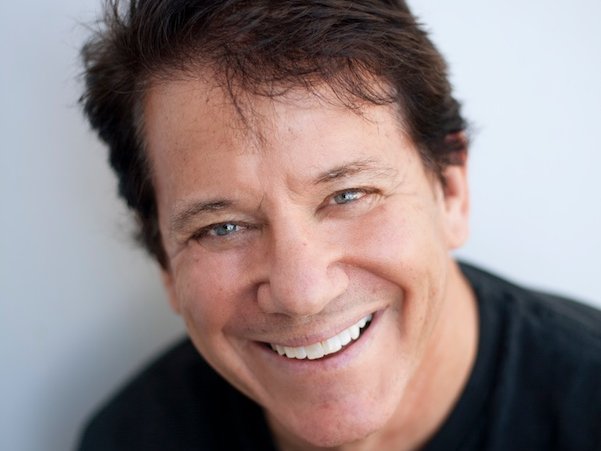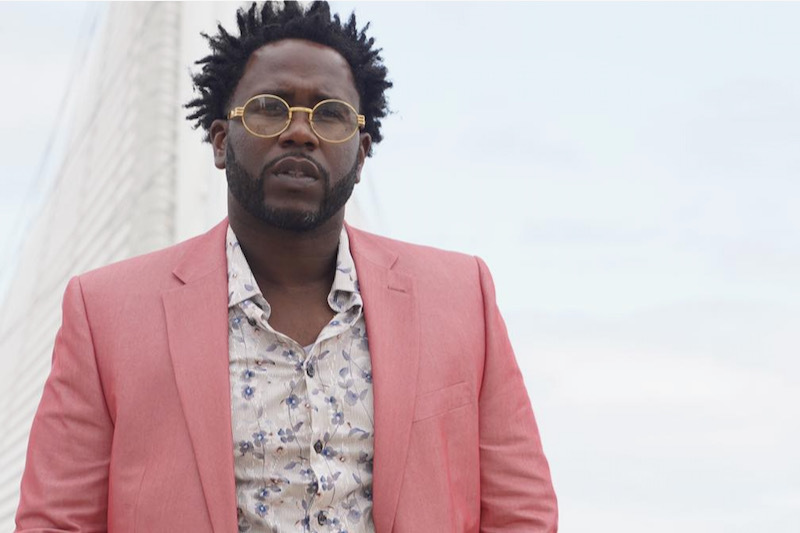Anson Williams has a prolific career as a television director, writer and producer. He is also a successful entrepreneur, a father of five and a recording artist.
But to most people, especially Milwaukeeans, Williams will always be "Potsie."
This is OK with Williams, who says his time on "Happy Days" was a privilege and an opportunity that opened many doors for him.
Recently, Williams wrote a book, "Singing To A Bulldog: From 'Happy Days' to Hollywood and the Unlikely Mentor Who Got Me There," a collection of stories ranging from the time he was kidnapped by President Ford’s daughter, Susan, to the time he directed a not-yet-famous Brad Pitt.
However, the book is mostly about the influence one man had on Williams.
"Without him, I wouldn’t be here, talking to you right now," Williams said during the interview.
Willliams will be in Milwaukee promoting his book on Friday, Dec. 19 at Schlitz Park Atrium, 1555 N. Rivercenter Dr., from 11:30 a.m. to 1:30 p.m. The event will include a Q&A followed by a book signing.
OnMilwaukee.com recently had the chance to interview Williams and chat about his book, jumping the shark, raising five daughters, the Bronze Fonz, being "Potsie" forever and how the support of one person can change your life forever.
OnMilwaukee.com: Was writing a book a long-time goal for you?
Anson Williams: If you would have asked me a year ago if I was going to write a book I would have said, "What? Are you kidding me?" I have written a lot of scripts, but writing a book seemed impossible.
However, I knew some people through Reader's Digest who knew some of my life stories and they asked me to write some of them. I thought that would be fun, but I’m sitting at the computer, trying to figure out which stories about myself I wanted to write. Suddenly, I felt this sensation rush through me, and the first words I typed out were "there would be no stories without Willie Turner." It hit me so hard, I wrote the introduction to the book in one sitting.
OMC: Wow, so who is or was Willie Turner?
AW: Willie was an African American man in his 50s. He was an alcoholic, illiterate janitor. When I was 15, I was an unfocused, unconfident kid. I knew everything I did wrong and nothing I did right. I was broken. My family did not have any money and when I started to want things, I got a job as an assistant janitor at a Leonard’s Department Store in Burbank, Calif. Willie was my boss.
If he hadn't help me, I would not be here talking to you today.
When I was done working, Willie would invite me to his "Dey Talk Room," a small janitorial space with a couple of rusty oil drums to sit on. He would take out a flask and took the time to find out who I was and what I was good at. He said things to me like, "You special, boy. You’re gonna do something great in life."
He told me, "You don’t look at the mountain, you climb the mountain." This changed my life. He gave me so many life lessons and they were amazingly important and timely for me. I never forgot them, or him.
Through the book, I want the readers to have the same experience I did. The chance to enter the Dey Talk Room and discover how to find and climb their mountains.
OMC: So the book is part memoir and part motivational, self-help book?
AW: It turned out to be more motivational than a memoir. It just poured out this way. It was a chance to honor Willie.
OMC: You described yourself as "broken" as a child. Who or what "broke" you?
AW: Every day of my life, my dad said something like, "If it wasn’t for you, I’d have my art gallery and I wouldn’t have to feed your stupid face." My dad made sure his failure was my failure, and I didn’t let him down: I was irresponsible, insecure, klutzy. I was shocked after my first day of work when Willie said I did a good job and that he liked me.
OMC: How did you first see change within yourself once you knew someone believed in you?
AW: Willie and I were assigned the job of unpacking refrigerators in the appliance section of the department store. Back then, freezers that didn’t over-freeze were a big deal. While we were unpacking, I said, "Freeze your food, not your freezer!" Willie said, "That’s good. You have a gift for words." And he must have told someone, because two days later, there was a banner in the department with "Freeze your food, not your freezer" and we sold out of refrigerators.
Do you know what that meant to a 15-year-old who didn’t think he was good at anything? I realized I had good instincts and I would have opportunities.
I brought this with me throughout my entire life. When I was on "Happy Days," I didn’t get paid like actors do today to be on TV shows. I mean I did OK, but I wasn’t going to get rich. So I started looking for an opportunity. One day, it dawned on me that David Cassidy got a record contract by singing on his show, and "The Brady Bunch" did, too. I thought, "I can sing, sort of, I just need to convince Garry (Marshall) to put me in a band on the show."
I asked to talk to him and he was really busy and said, "You have 60 seconds." I said we needed to have a band on the show that played at Arnold’s. He stopped in his tracks and said, "A band? Do you sing?" And I said, "I’m OK." And he told me they were in the process of writing an episode with a frat party in it and he would try out my idea by writing a band into the script.
OMC: Ah, this is where the title of your book comes from?
AW: Yes. Garry said, "I’ll have you singing to a bulldog. If you’re good, I’ll get laughs. If you’re not good, I’ll still get laughs."
So I sang in the frat party episode, and Garry liked it, and he wrote in the band about every third episode. I got a record deal and booked concerts all over the country. But the best part was Garry was proud of me and said that instead of complaining about my salary, I used what I had to create more for myself. I would never have been able to move my career in new directions like that without Garry. And without Willie, I would never have realized I had singing talents in the first place.
OMC: You mentioned that "singing to the bulldog" is the opposite of "jumping the shark." Can you expound on that?
AW: "Jumping the shark," the expression, comes from "Happy Days." It’s the precise moment something starts to decline. "Singing to a bulldog" is the exact moment you start to climb.
I really want to go forward with "bulldog moments." I'm so tired of the negativity in the world – we’re too focused on the "jump the shark" moments – and I want to inspire people so they can have that one magical spark moment that gets them climbing their mountain.
I don’t want to come off as corny. It’s not saccharin. I just want more light.
OMC: You’ve done so much in your life, and yet, you will always be "Potsie" to so many people. Does this bother you?
AW: The nice thing about it is that when people say "Potsie" there is always a smile on their faces. I am grateful for the opportunity to be on the show, to be Potsie. But once, I was complaing to Ron (Howard) about being Potsie all the time and he said, "What are you complaining about? I get ‘Richie’ AND ‘Opie.’"
Ron went on to say, "Anson, you have to earn your name. They know us by the show, but we earn our name." He was so right. And now, I think it's wonderful, wonderful that people know me as "Potsie" and "Anson."
OMC: Will you visit the Bronze Fonz when you come to Milwaukee?
AW: I would like to, if I can fit it in. I have a pretty tight schedule in Milwaukee. It’s funny, because people have asked, "Are you jealous you didn’t get a statue?" Are you kidding?! He bought me a house. Being on the show was one of the greatest gifts of my life. I am honored to have been a part of it.
Milwaukee will always be special to me because of the show, but also because of the city itself. I think Los Angeles could learn a crapload from Milwaukee. It is such a beautiful city with so much culture.
I am so glad Tom won the bet.
OMC: What does that mean?
AW: There were three executive producers on "Happy Days." Eddie (Mekka), Tom (Miller) and Garry. Garry was from New York, Eddie was from California and Tom was from Milwaukee. They all wanted the show to take place in their home city, so they had a three-way coin flip and Tom won. Thank goodness.
OMC: You have five daughters, right?
AW: I do. They range in age from 8 to 25. I have one grandson, Jackson.
OMC: How was / is it raising five girls?
AW: Humbling. So humbling.
OMC: Are you in contact with the "Happy Days" cast?
AW: Don Most ("Ralph Malph") lives five minutes from me so I see him the most. He is an incredibly talented man. He has a touring big band. Seriously, he is as good as Tony Bennett.
Ron and I have stayed in contact. He called me recently to tell me he was proud of me, of the book. That meant a lot.
OMC: What happened to Willie Turner?
AW: Willie died when I was 19. He never saw who I became, thanks to him, and yet he's always with me. And I am still in that talk room, listening.
Molly Snyder started writing and publishing her work at the age 10, when her community newspaper printed her poem, "The Unicorn.” Since then, she's expanded beyond the subject of mythical creatures and written in many different mediums but, nearest and dearest to her heart, thousands of articles for OnMilwaukee.
Molly is a regular contributor to FOX6 News and numerous radio stations as well as the co-host of "Dandelions: A Podcast For Women.” She's received five Milwaukee Press Club Awards, served as the Pfister Narrator and is the Wisconsin State Fair’s Celebrity Cream Puff Eating Champion of 2019.




.jpg)


